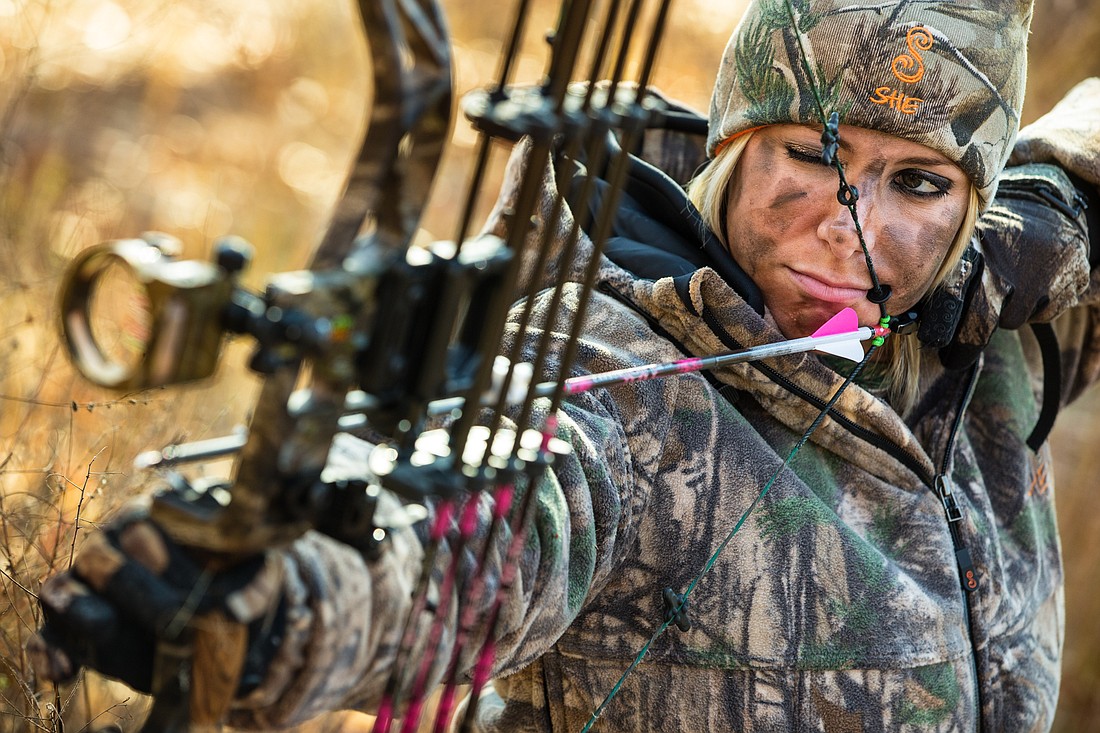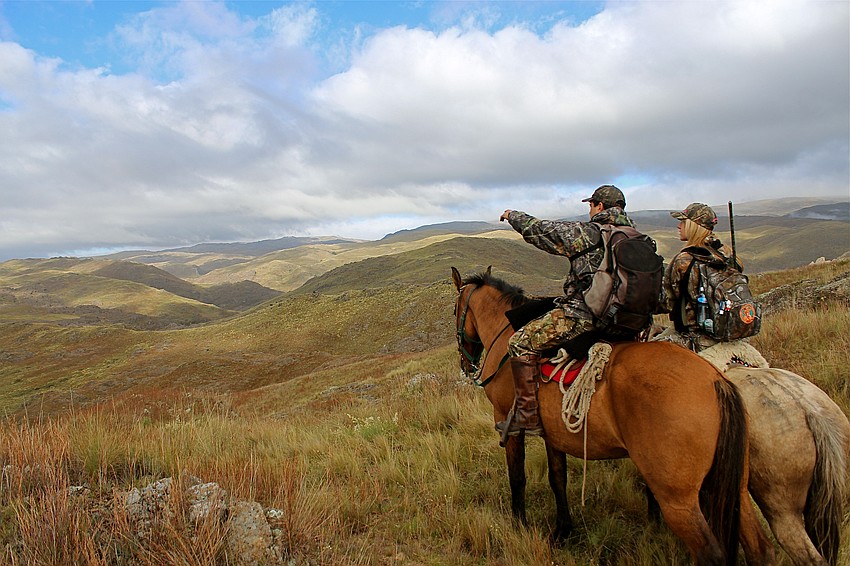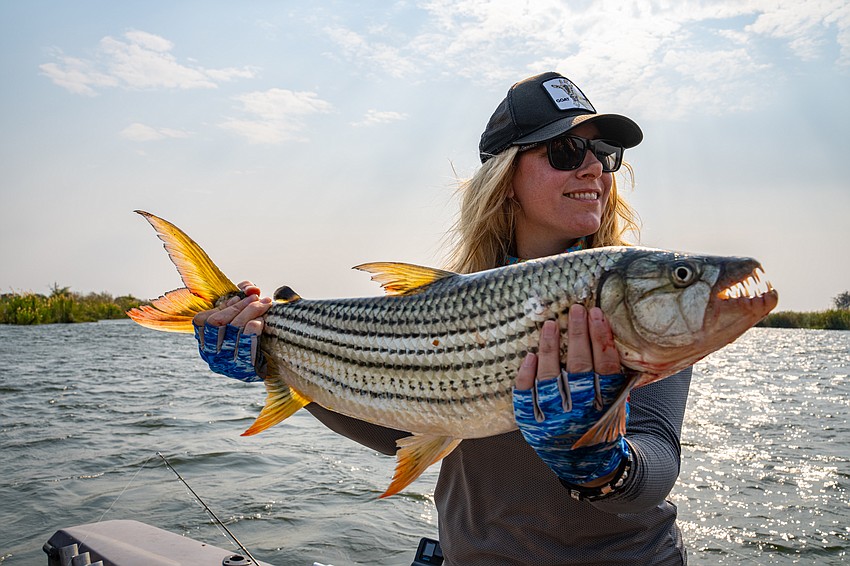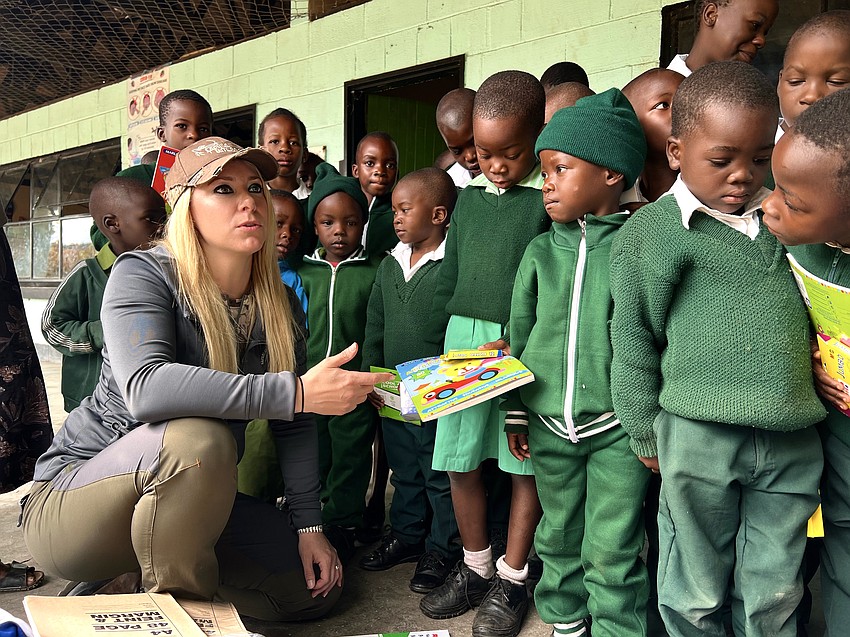- April 4, 2025
-
-
Loading

Loading

She was supposed to be an accountant, or maybe a lawyer.
Instead, she became a professional big-game hunter and the host of her own outdoor adventure TV show.
To watch her sight a target through the scope of a rifle or cast bait, it would seem Sarasota's Larysa Switlyk has been doing it her entire life.
But she didn’t discover her calling until she was 23 years old — and even then it took a combination of luck and nerve.
“I didn’t have the opportunity to get outdoors. I made one,” said Switlyk.
She grew up in Albany, New York, the daughter of two doctors.
Switlyk said she now appreciates how hard her parents worked to provide for her family, but her parents’ busy work schedules limited her opportunities for interscholastic sports and extracurriculars.
The family rarely fished, even after moving to Longboat Key in 1995. Switlyk’s exposure to outdoor pursuits was limited to a fishing rod purchased at the Longboat Key Publix and the lucky catch of a flounder on a hand line when she was 11 years old.
Switlyk finished high school at Sarasota High and then attended the University of Florida where she earned bachelor's and master's degrees in accounting. Her path was set. She dreamed of working in Manhattan, the city life.
So she got a taste working as a tax intern the summer of 2006 in New York City.
“It was too much work, stress, too much drinking. It was working 12 hours a day. I watched my manager there miss (making) partner. (He said,) ‘I put my life and soul into this,’” Switlyk explained. “I realized I could waste 10 years of my life (there).”
Switlyk was back in Florida, considering law school and hearing excuses from friends on why they couldn’t go on a backpacking trip.
“I’m not going to wait around for anyone,” she said.
She went solo. At 23, she spent six months living out of her bag. First Australia, then New Zealand.
“I pushed myself to see what I could try. Bungee jumping, I camped for the first time, skydiving,” she said. “I wanted to learn how to fly fish.”
She was on South Island, New Zealand, in 2007. When Switlyk showed up at the outfitter, the guides told her that fly fishing season was over. Did she want to go on a hunt?
“I didn’t know anything. I’d never shot a rifle before. I showed up with hiking boots and a backpack,” she said. “I didn’t even know how expensive it was.”

Before the guide, Shane Johnson, would take her out, he wanted to make sure Switlyk could shoot properly. After hitting a target 100 yards away twice, Johnson took her on a deer hunt, where she bagged a deer on her first try.
When Switlyk returned to the U.S. she was brimming with enthusiasm. She wanted to share her newfound passion with her family, but her parents and brothers were confused.
"Why are you killing animals?" they asked.
“They thought something was wrong with me,” Switlyk said. “But they eat meat. But because they didn’t understand it, they didn’t like it.”
She thought she might be able to change people's perceptions on hunters and educate people about how hunters care about nature and healthy animal populations and how hunting contributes to conservation and the defense of public land access. But first, Switlyk needed to find a way to fund her passion.
She found an unconventional way to fund her passion. She obtained her real estate license and sold houses on Longboat Key.
She'd use the money to hunt any chance she had, whether it was hunting turkeys in Arcadia or traveling abroad for more unusual game.

It was around this time she saw a show on ESPN called “Get Wild.” The outdoor program hosted by Cindy Garrison took viewers on hunting adventures around the world.
She gave herself five years to make a TV show.
It took her three.
From the outside looking in, “Larysa Unleashed” seems like a dream job for a hunter or an angler. Switlyk is quick to point out that it is. But the finished product, a half-hour show about a hunting or fishing adventure, is the result of scripting, storyboarding and painstaking planning. Expeditions are expensive propositions.
Switlyk explained that a typical day for a fishing episode often means fishing and filming from 6 a.m. to 9 p.m. Then from 11 p.m. to 2 a.m., recording video of tying rigs and prepping gear for the next day’s 6 a.m. start. Repeat for a week. Then comes the editing and business side.
“There’s so much more office work behind the scenes. It’s the most work I’ve ever had,” Switlyk said.
“People confuse hunting with poaching,” Switlyk said. “Hunting is very regulated. Hunters are the first line of defense in conservation. They protect habitats, they manage populations. Their dollars support it.”
She points to the taxes on firearms and ammunition that go to state wildlife agencies for conservation.
Since she began her show, she has hunted 100 species on trips in 60 countries and has seen up close the positive impact of hunters, she said.

“If not for hunters, all the (game) animals in Africa would be poached,” Switlyk said. “If there’s no value to the animal, there’s no reason to keep the animal around. Hunters add value to the animal. Societies will save these animals because they’re lucrative.”
In hopes of educating more people, she formed a nonprofit in 2022 with a two-pronged mission: to educate people about hunting and conservation and to give more people the opportunity to get outdoors, whether it’s as hunters, anglers or hikers.
Unleashed Outdoor Education and Wildlife Conservation Inc., a 501(c)(3) organization, has already made a $500 donation to the Myakka Elephant Ranch and delivered medical and school supplies to a remote village in Zimbabwe.